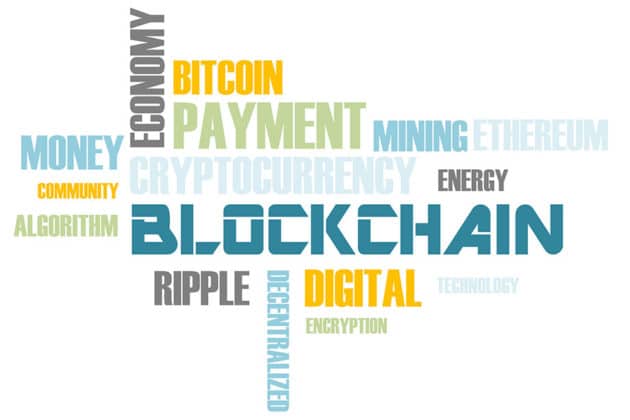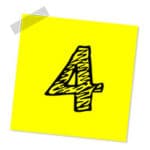Blockchain technology is becoming more prevalent with every market cycle. As the popularity of cryptocurrencies grows, so does their acceptance by the mainstream public. That said, blockchain is far more than just a vessel for cryptocurrencies.
The technology itself has been deployed across various industries, such as supply chain, healthcare, and decentralized finance, among others. Assets like gold, company shares, and NASDAQ indices can now be tokenized and traded on the blockchain — over 2,000 of such assets are now available on Currency.com.
Consequently, the software development industry has seen an increasing growth of opportunities in this niche. New blockchain platforms are being developed all the time, and software companies choose to integrate the tech into their existing offering. As such, software developers that specialize in blockchain technology are in great demand. And because of the relative novelty of blockchain tech, there aren’t nearly enough software developers to fulfill this growing demand.
With an average salary of $100,000 per year, a blockchain developer is a lucrative job opportunity. For this reason, we would like to explore some of the main applications of blockchain technology in software development. Additionally, we will take a look at the most common programming languages that can be useful in this niche. Finally, we will analyze the required skills a developer should have to thrive in this industry.
Why Is Blockchain Applied in Software Development?

Blockchain tech allows software developers to access revolutionary mechanisms. Let’s have a look at some of the particularities of this technology that provide substantial advancements in software development.
- Data distribution. Blockchain technology relies on a decentralized, distributed ledger of transaction records. This implies that a large number of nodes (computers) hold a copy of this ledger, ensuring its veracity on the network. This increases the security as well because it doesn’t present a single point of failure that could be exploited by hackers.
- Immutable transaction records. The decentralization provides immutability of data. Because multiple nodes hold the exact copy of the ledger, modifying it is impossible without at least 51% consensus from all the nodes of the network.
- Data integrity. Before transactions are recorded on the blockchain, the software verifies their integrity. Consequently, blockchain creates a trustless system, where all data is previously verified and deemed legitimate.
- Asymmetric cryptography. Blockchain relies on a pair of keys to secure the assets on its network. The public key allows us to locate the assets, while the private key allows us to sign for transactions and use those assets. Moreover, cryptography is what links every block to one another. Every block contains the hash of the previous one, prohibiting any alterations in the data and making it inherently secure.
- Peer-to-peer technology. Blockchain tech allows users to directly transact with one another. This means that there are no necessary intermediaries, which reduces the costs of transactions and eliminates human error from the equation.
- Transparency and traceability. Finally, one of the strongest selling points of blockchain for software development is added transparency. All data on the blockchain is publicly available, and every transaction can be traced back to its origin.
Because of all these features, blockchain-oriented software (BOS) is being increasingly adopted in various sectors and industries.
Recommended for you: What is the Significance of Blockchain Technology in Today’s Times?
What Tasks Do Blockchain Software Developers Perform?

Blockchain developers have two major paths to choose from: core blockchain developer and blockchain software developer. A core blockchain developer will build networks from scratch and work on the core architecture of the blockchain. This includes the consensus mechanism, the way transactions are verified, and the process of rewarding miners or stakers.
Consequently, a blockchain developer will need to have extensive knowledge in cryptography and blockchain data distribution. They should be well acquainted with advanced security and privacy algorithms such as zk-SNARKs and rollups.
Moreover, core blockchain devs need to master all consensus mechanisms at their disposal. These include the commonly used proof-of-work and proof-of-stake methods, as well as the more novel algorithms, such as proof-of-history and proof-of-activity. This way, they will be able to choose the best industry practices for an efficient application of scalability, security, and decentralization to their newly created blockchain.
Conversely, you could also choose the path of the blockchain software developer. This type of developer will deploy decentralized apps that use smart contracts and run on top of an existing blockchain such as Ethereum. Consequently, they will actively be involved in juggling Layer-1 (Ethereum, Avalanche, etc.) and Layer-2 technologies (Polygon, Loopring) to optimize their transaction throughput and cost-effectiveness.
What Programming Languages Are Used?

Becoming a blockchain developer is quite similar to learning software development as a whole. While the architecture and logic might differ, the programming languages usually overlap, with only a few exceptions. Consequently, the following programming languages should serve you well if you wish to get started as a blockchain developer.
Java

Released in 1996, Java is one of the most popular programming languages available. It gets its popularity from the countless libraries and APIs that are made available to developers so that they don’t have to program from scratch. JAVA remains popular to this day for its intuitiveness, platform portability, and simple code.
C++

After more than 35 years of usage, C++ remains one of the oldest programming languages still in use today. Thanks to its object-oriented architecture, C++ and its younger brother C#) are popular programming languages that helped Satoshi Nakamoto release the original version of Bitcoin. It’s a fast, high-performing language that is easy to optimize. Its object-oriented architecture suits blockchain particularly well and has thousands of ready-to-use libraries for quick development.
Python

Python is increasing in popularity every day, thanks to its high accessibility. Consequently, picking Python to program blockchains is a great choice, as there are tons of open-source libraries available. Moreover, the learning curve is quite mellow, allowing you to quickly deploy working software with much less effort than any other programming language.
Solidity

Solidity is the base programing language of the Ethereum blockchain. Every decentralized app developer should have at least some knowledge of this programming language, as Ethereum remains the #1 smart contract platform out there. Even though there are newer and faster alternatives nowadays, migrating dApps from Ethereum to another blockchain is a costly process. Moreover, with Ethereum changing to an economical and eco-friendly proof-of-stake model in 2022, the network is bound to grow even further in the following years. Consequently, Solidity programmers should be in growing demand as well.
You may like: Blockchain in Mobile Application Market (Infographic).
Basic Skills Required for a Blockchain Developer

Once you have mastered the usage of at least one of the aforementioned programming languages, the job is only half-done. Every self-respecting blockchain developer should have a good mastery of some essential programming skills particular to this niche. These include the following:
Cryptography

Blockchain security relies on cryptography, first and foremost. Cryptography is the backbone of blockchain technology and provides users with proof of ownership of their assets on the network. It also ensures blockchain wallets are virtually unhackable, which makes the technology inherently secure.
Understanding Smart Contracts

Smart contracts provide blockchain technology with increased usage cases. Thanks to these self-executing pieces of code, developers can deploy decentralized applications aimed at a variety of industries. In a nutshell, smart contracts enable software developers to program the blockchain and automate complex transactions. For instance, the entire decentralized finance ecosystem is built on smart contracts. This includes decentralized exchanges, lending protocols, liquidity pool contracts, and many more.
Knowledge of Data Structures

The data structure of blockchains differs quite a bit from traditional programming. A blockchain database is a series of blocks linked together through cryptography, each one referring to all the blocks that came before it. Moreover, there are additional complex data structures that take advantage of cryptography such as zk-SNARKs, which allow for better scalability of blockchains.
Web Development

Blockchain developers should be knowledgeable in web development as well. Since blockchain is online-first technology, it requires a profound understanding of web protocols, security, and their implementation. Providing users with powerful APIs for deploying apps is a key skill that many blockchain projects require from their software developers.
Tokenomics

Finally, a good blockchain developer should have a good understanding of financial models and how supply and demand can impact the token’s value on the market. After all, blockchain companies are businesses and most of them rely on the economics of the project’s cryptocurrency for continuous funding and profit. As such, creating a reliable economic model for your cryptocurrency is of the essence. An intricate supply, demand, and rewarding mechanism is the first thing investors will look at, together with the utility of the tokens themselves.
You may also like: Google is Working on its own Blockchain Technology.
Conclusion

The blockchain industry is growing every day. And with the Web3 revolution at our doorstep, this trend is only going to accelerate in the upcoming years. Consequently, becoming a blockchain developer can be a great way to ensure a growing and profitable career in a promising and challenging industry. And we hope this article was able to give you some pointers on what to expect when starting a blockchain developer career.





